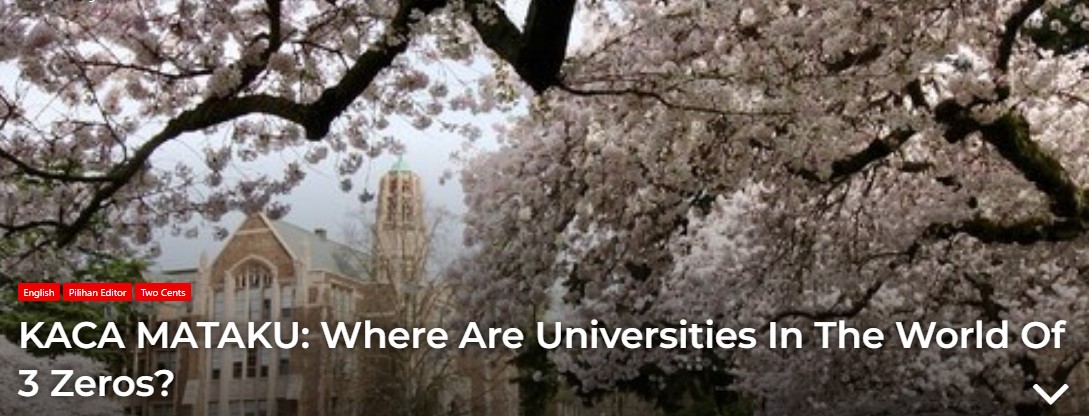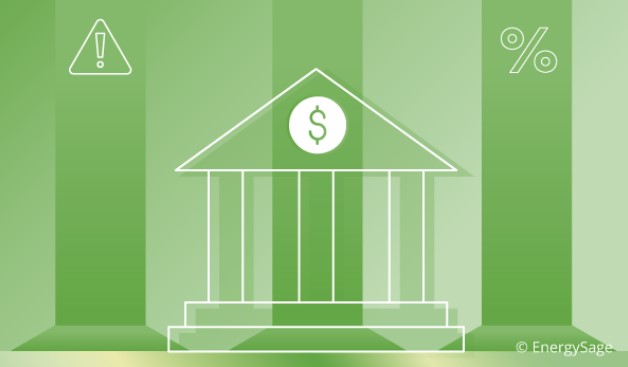Where Are Universities In The World Of 3 Zeros?
Emeritus Professor Tan Sri Dato' Dzulkifli Abdul Razak
Opinion - Bacalah Malaysia
August 3, 2023

Recently, Prof Muhammad Yunus, the 2006 Nobel Peace Laureate renowned for his work on microcredit, was at hand to deliver a talk entitled Entrepreneurship for a Better World: Achieving the Three Zeros Agenda.
It was part of Campus with a Conscience Series hosted by a university famously noted for its “a class above” tagline. It seemed well suited for Yunus who is undoubtedly “several” class above!
This is evident from his more than 45 years of experience in promoting ideas of how to create a more just and fairer society.
It is well argued in the proposed world of three zeros: firstly, zero net carbon emission; then, zero wealth concentration for ending poverty once and for all; lastly but not the least, zero unemployment by unleashing entrepreneurship in everyone.
It is a world of stark contrast to the prevailing discriminatory situation worldwide that is seemingly designed and maintained as such, economically speaking at least.
For instance, according to Yunus, the whole problem of unemployment is created by the capitalist concept of employment, which assumes that every human being has to work for somebody else – that is, salaried and employed.
Malaysian universities are inundated with this idea promoted no less by the Ministry and the government. Some universities even take pride of being the “best”in this category! And marketed it as a brand.
Yunus takes a different stance. To him, human beings are not born to work for someone else.
Each person is endowed with an inherent unlimited creative capacity (talent). When one works for someone else, this creative capacity is often neglected if not destroyed. Hence, the passion to become an entrepreneur is compromised.
This is why Yunus emphasises on redesigning the whole capitalist system as a way to get out of the problems plaguing our world due to the insidious capitalistic educational framework. The notion of human capital being one.
As the founder of the Grameen Bank, Yunus took the bull by the horn and pioneered the concept of microcredit and social business instead. He, in fact, questioned the current economic model. Especially, in respect to the poor who are generally regarded as “unbankable.”

This is well demonstrated during the pandemic where the issue of “bankability” was pushed to the fore once more.
What seemed clear was that the various experiences of lockdown by all were no different globally.
They provided an opportunity to rethink the “business as usual” (BAU) mindset, not just of society, but the university too.
In fact, the latter should precede the former in reshaping it. Now, it is reversed. Is the university then really “a class above”?
If so, above what?
To Yunus the answer comes quite naturally as an outcome of an in-depth review and reflection to move away from BAU! The challenge, therefore, is for universities to go beyond the conventional teaching processes and the so-called “tools of efficiency.”
By navigating through the “business unusual” mode, universities can be refashioned to deliver the more just and fairer society. In other words, delivering a more equitable prosperity in terms of economy, ecology and social well-being. In reality, however, the change is more brutal based on his decades of persistence.
The ideas are still far from being accepted to root justice and fairness far and wide as illustrated by the pandemic.
Meaning supports made available need to be creative and equitable. Business schools, in particular, should teach social business, not just managing for profits excessively.
In the same way, education must follow suit, and not be fixated to BAU, or ignores the need to fulfil the inherent potential talent to protect the environment towards a sustainable world.
Under the umbrella of Education for Sustainable Development (ESD), a transformative change must take place to re-orientate education in line with the 17 Sustainable Development Goals (SDGs) by 2030.
The first goal of the SDGs aims at zero poverty, namely, like the microcredit, ESD too must be mainstreamed to reduce societal disparities in production and consumption to realise a just and fair society.
Simply put, by changing the values that drive society through a whole institution and community approaches.
Yunus famously illustrated this when initially adopted beggars throughout his organisation then. The beggars were given a small sum of money to enable them to start a side business while begging at the same time.
Needless to say, over time, most wound down their begging activities. And continue with the thriving side business instead. The idea is to keep things honest and simple, and workable in order to inspire successful transformative changes toward self-reliance and resiliency.
Assuming that the other two zeros are also embraced, only then labels like “a class above” can be acknowledged with full conscience.
Otherwise, it is unethical and misleading to do so!
“…’guts’ is a commodity that is scarce nowadays in the country.” – Mahathir Mohamad, 7th Prime Minister (10 May 2018) – BACALAHMALAYSIA.MY
- The writer is rector, International Islamic University Malaysia (IIUM)
